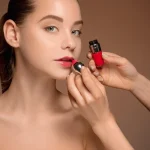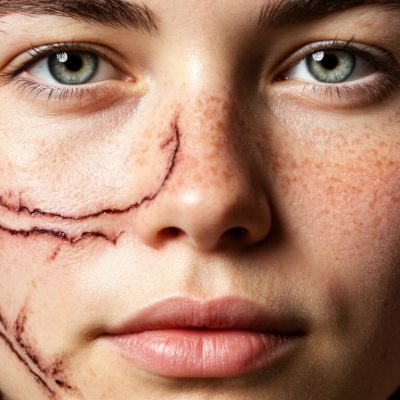Why the Belief Exists
It remains a mystery who first proposed treating acne with toothpaste. Still, it has become a widespread “quick-fix” method, embraced by many across the internet, including celebrity models like Gigi Hadid! Claims flood social media, with people swearing by its miraculous ability to clear pimples in just hours. While it’s true that toothpaste can dry out blemishes (a side effect often cited by its proponents), this is hardly a solution for irritated skin. It can leave your face red and inflamed—exactly the opposite of what you want when dealing with an outbreak.
The myth likely originates from the misconception that toothpaste, with its bacteria-killing properties for oral hygiene, can also target the same bacteria causing acne. However, that’s simply not the case. Toothpaste was not designed for application on the skin and has no capability to combat the acne-causing bacteria. Furthermore, treating the pimples themselves won’t address the deeper issues at the root of acne development.
What’s Really in Toothpaste?
The drying effect of toothpaste on your skin is due to its potent ingredients. Toothpaste often contains alcohol, hydrogen peroxide, baking soda, and sodium lauryl sulfate—components commonly found in various skincare products. However, when combined, these ingredients can create a harsh cocktail that may lead to skin irritation. Our teeth, being some of the hardest structures in our bodies, are tough enough to handle such mixtures. But our skin is another story—it’s far more delicate and cannot withstand such intense treatments. Using a product meant for oral hygiene can disrupt your skin’s delicate pH balance, resulting in further inflammation and flare-ups.
Another common ingredient found in some toothpastes is triclosan, which is also used in acne-fighting products. However, in those formulations, it serves as a preservative, not as an active ingredient. Triclosan can sometimes be found in antibacterial soaps, but studies have shown no definitive evidence that it kills more bacteria than regular soap. In fact, many companies have phased out triclosan from their formulations due to safety concerns. While it does have proven efficacy against dental plaque, it doesn’t perform the same role for acne. It’s important to recognize the distinction.
Why You Should Never Use Toothpaste on Your Skin
The primary reason you should avoid using toothpaste as an acne treatment is simple: it’s unlikely to work and could cause further irritation to your skin, particularly the sensitive skin of your face. You might experience a rash or even a mild chemical burn. For already inflamed skin, this can be catastrophic. Even if your skin seems unaffected by the ingredients mentioned above, some substances in toothpaste—such as propylene glycol, cinnamaldehyde (a fragrance ingredient), and sodium benzoate (a preservative)—can cause an allergic reaction upon direct application. The signs of an allergic reaction include itching and swelling in the area of application.
How to Effectively Treat Pimples
If you’re looking for a faster and safer solution, consider using targeted antibacterial treatments designed specifically for acne. These are usually available in small tubes and are intended for spot application. Products containing benzoyl peroxide (which kills the bacteria responsible for acne) and salicylic acid (which removes excess oil and gently dries out pimples) are highly effective when used in combination. Together, they accelerate the healing process of acne. You can find detailed reviews of effective acne spot treatments here.
For those who prefer a more natural remedy, tea tree oil may offer some relief. A 2020 study found that tea tree oil effectively combats the bacteria that cause acne and can be a promising alternative to traditional acne treatments. However, always patch-test the oil on a small area of your skin—behind your ear, for instance—to ensure you don’t experience any adverse reactions. Use it sparingly, applying it only to the affected areas.
A simple, safe option includes applying a cotton pad soaked in cooled green tea to the inflamed area, followed by a gentle antibacterial ointment or an ice cube. The cold constricts blood vessels and alleviates redness. But, if you frequently experience breakouts, it’s best to seek professional advice from a dermatologist. Self-treatment could lead to further complications, as highlighted by Svetlana Korotchenko, the creator of the skincare blog @acneclub @ateviss, in her enlightening article on the dangers of improper acne management.
Summary: Never Use Toothpaste for Spot Treatment
In conclusion, using toothpaste to treat acne is not only ineffective but could also worsen the condition. Many of the ingredients in toothpaste can cause allergic reactions when applied to the skin. It’s much safer and more effective to use beauty-specific acne treatments. Choose products that are specifically formulated for skin care to avoid further complications and irritation.







